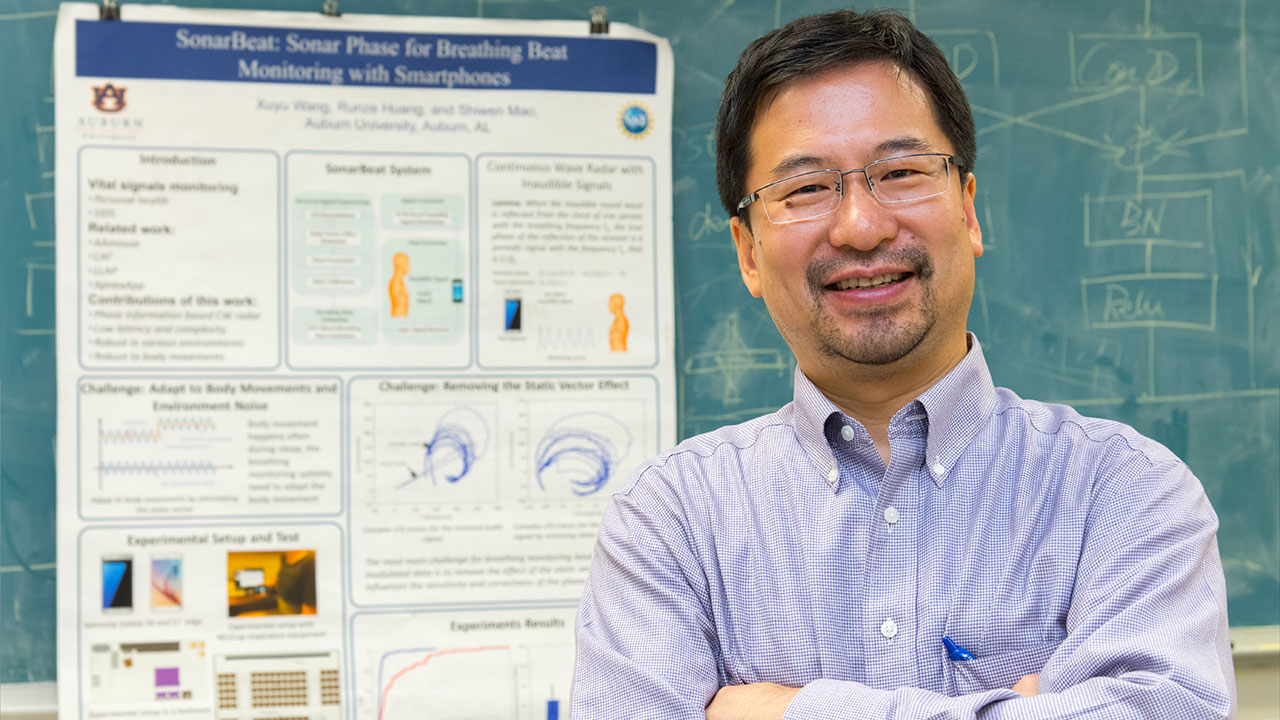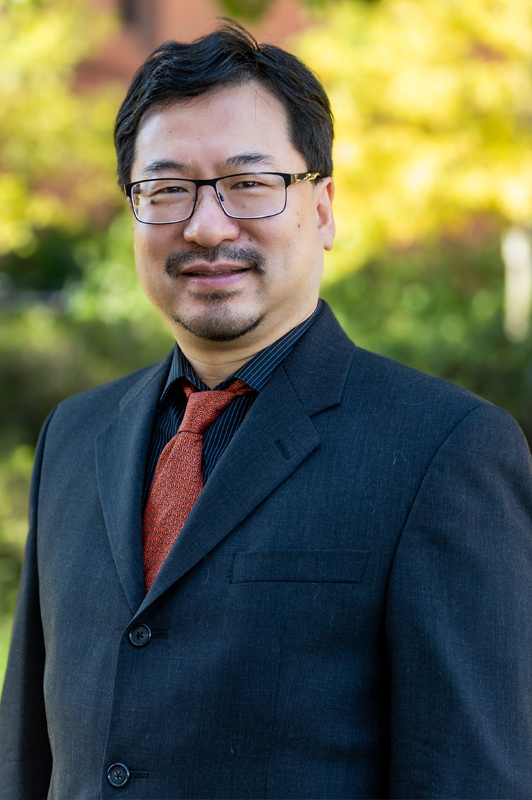Director of Wireless Research and Education Center part of three NSF-funded projects
Published: Sep 19, 2023 7:00 AM
By Joe McAdory
Shiwen Mao, director of Auburn University’s Wireless Research and Education Center, is part of three National Science Foundation grants combining for nearly $2.2 million. Mao said Auburn University’s share is $940,000.
What is Mao’s roadmap to grant funding? Diligence, variety and collaboration.
“NSF programs are known to be very competitive,” said Mao, a professor in electrical and computer engineering, and Earle C. Williams Scholar. “One effective approach to get funded is simply to submit more proposals. If you do not submit any, the chance of funding will be zero. Another approach I tried is exploring a variety of programs. Don’t keep focusing on just the core program of your field. My area of expertise is wireless engineering, but I also submitted to education, outreach and diversity programs.
“Lastly, quality of research is very important. One way to improve your quality of research is to collaborate with colleagues across colleges and universities, who often share a variety of viewpoints and bring in complementary expertise that help broaden the scope and strengthen the depth of the proposal.”
Mao’s $399,998 project is titled, “Functional Data Analysis-aided Learning Methods for Robust Wireless Measurements.” Along with Co-PI Guanqun (Vivian) Cao, associate professor in the Department of Mathematics and Statistics, and Dr. Xuyu Wang with the Florida International University, they aim to 1) develop a deep learning-based approach to address fundamental regression problems in functional data; 2) develop a better understanding of functional data regression and classification under the distribution between test data and training data for effective wireless measurements in dynamic environments; 3) develop a deep learning-based approach to address the fundamental bottleneck of quantile regression-based methods; and 4) develop wireless measurement applications for integration and validation.
Mao’s remaining NSF-awarded projects involve radio frequency identification (RFID).
His work, “When RFID Meets AI for Occluded Body Skeletal Posture Capture in Smart Healthcare,” was awarded $240,000. With his collaborators, Dr. Jian Zhang with Kennesaw State University and the Auburn University RFID Lab, he will create a low-cost, unobtrusive posture capture system for healthcare and home environments. With passive RFID tags attached or fabricated into clothing, wireless signals can be captured and analyzed to infer human activities. Mao said this is especially important for subjects at high risk of falling and would also be useful for sleep monitoring.
“Successful completion of this project will significantly improve the state-of-the-art wearable sensor networks and Internet of Things systems,” he said.
Mao, an IEEEE Fellow, earned a $299,997 grant for the project, “Collaborative Research: AI-driven RFID Sensing for Smart Health Applications.” To reduce the cost of wearable health monitoring systems, Mao and five colleagues from Florida International University, Brown University, and Johns Hopkins University are collaborating to use RFID to sense respiration rates, conduct pulmonary tests and monitor heartbeats. The project’s algorithms are expected to be validated by experiments in real clinical environments with a special focus on detecting Parkinson’s disease and breathing-based interstitial lung disease.
“People have different goals in life,” Mao said. “In my case, I chose academia because I can focus my work on solving interesting and relevant problems. Through the papers that my colleagues and I publish, perhaps industry will adapt our performance-improvement ideas and implement them in their products. It’s important to make a positive impact in the community and in people’s lives. Making this happen is always something I want to pursue.”
Media Contact: , jem0040@auburn.edu, 334.844.3447
Shiwen Mao said it was important to create research that positively impacts people's lives.


